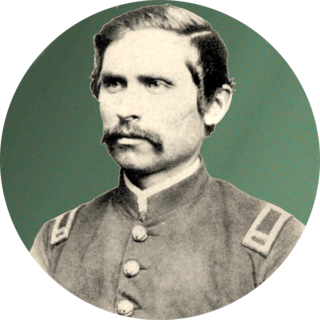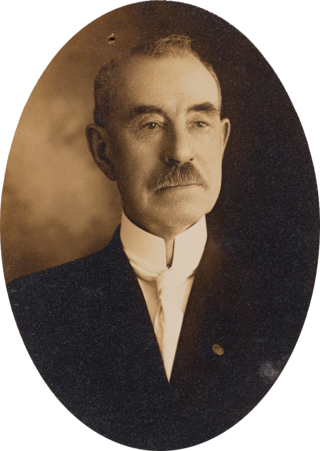| |||||
| Centuries: | |||||
|---|---|---|---|---|---|
| Decades: | |||||
| See also: | 1867 in the United Kingdom Other events of 1867 List of years in Ireland | ||||
Events from the year 1867 in Ireland.
| |||||
| Centuries: | |||||
|---|---|---|---|---|---|
| Decades: | |||||
| See also: | 1867 in the United Kingdom Other events of 1867 List of years in Ireland | ||||
Events from the year 1867 in Ireland.

Events in the year 1960 in Ireland.
Events from the year 1957 in Ireland.
Events from the year 1956 in Ireland.
Events from the year 1951 in Ireland.
Events from the year 1947 in Ireland.
Events from the year 1935 in Ireland.

The Manchester Martyrs were three Irish nationalists – William Philip Allen, Michael Larkin, and Michael O'Brien – who were hanged in 1867 following their conviction of murder after an attack on a police van in Manchester, England, in which a police officer was accidentally shot dead, an incident that was known at the time as the Manchester Outrages. The three men were members of the Irish Republican Brotherhood, also known as the Fenians, an organisation dedicated to ending British rule in Ireland, and were among a group of 30 to 40 Fenians who attacked a horse-drawn police van transporting two arrested leaders of the Brotherhood, Thomas J. Kelly and Timothy Deasy, to Belle Vue Gaol. Police Sergeant Charles Brett, travelling inside with the keys, was shot and killed while looking through the keyhole of the van as the attackers attempted to force the door open by shooting the lock.
Events from the year 1867 in the United Kingdom.
Events from the year 1873 in Ireland.
Events from the year 1860 in Ireland.
Events from the year 1878 in Ireland.
Events from the year 1779 in Ireland.

Thomas Joseph Kelly was an Irish revolutionary and leader of the Irish Republican Brotherhood (IRB), a secret organisation with the objective of establishing an Irish republic independent from the United Kingdom. Kelly was the nominal leader of the failed Fenian Rising of 1867. He had previously also been an officer in the Union Army during the American Civil War, serving mainly with the 10th Ohio Infantry "The Bloody 10th".

Timothy John Deasy was an Irish survivor of the Great Famine who emigrated with his family to Massachusetts in the United States. He later became an officer in the Union Army during the American Civil War, as well as a revolutionary fighting alongside the Irish Republican Brotherhood in both Canada during the Fenian Raids and Ireland during the Fenian Rising of 1867. Towards the end of his life, he became involved in electoral politics in Massachusetts, becoming one of the few Roman Catholics elected at that time to the Massachusetts House of Representatives.

The Fenian dynamite campaign was a campaign of political violence orchestrated by Irish republican paramilitary groups in Great Britain from 1881 to 1885. It involved attacks using explosives such as dynamite on British government and civilian targets and was carried out by the Irish Republican Brotherhood, United Irishmen of America and Clan na Gael with the ultimate aim of ending British rule in Ireland. Infrastructure was attacked along with government targets as part of the campaign, which killed 4 people, including a young boy, and wounded 86. The campaign met with widespread backlash in Britain and a mixed response in Ireland, and led to the establishment of the Special Irish Branch by the Metropolitan Police to counter the campaign. By 1885, the campaign petered out, though Irish republicans would continue to carry out attacks in Great Britain well into the 20th century.

The Fenian Rising of 1867 was a rebellion against British rule in Ireland, organised by the Irish Republican Brotherhood (IRB).

The Clerkenwell explosion, also known as the Clerkenwell Outrage, was a bombing attack carried out by the Irish Republican Brotherhood (IRB) in London on 13 December 1867. Members of the IRB, who were nicknamed "Fenians", exploded a bomb to try to free a member of their group who was being held on remand at Clerkenwell Prison. The explosion damaged nearby houses, killed 12 civilians and wounded 120; no prisoners escaped and the attack was a failure. The event was described by The Times the following day as "a crime of unexampled atrocity", and compared to the "infernal machines" used in Paris in 1800 and 1835 and the Gunpowder Treason of 1605. Denounced by politicians and writers from both sides of the political spectrum, the bombing was later described as the most infamous action perpetrated by Fenians in Britain during the 19th century. It enraged the British public, causing a backlash which undermined the Irish Home Rule Movement.

Edward O'Meagher Condon was an Irish nationalist and Fenian who fought in the American Civil War and attempted to participate in the Fenian Rising of 1867 in Ireland. After the Fenian Rising failed, In September 1867 O'Meagher Condon led a rescue party which attempted to save Irish Republican Brotherhood leader Thomas J. Kelly from imprisonment in Manchester, England. The rescue attempt led to the death of an English police officer and the arrest of sixty Irishmen, and led directly into the Manchester Martyrs case, in which O'Meagher Condon himself was one of the five main defendants. For his role in the attempted Manchester rescue, O'Meagher Condon was sentenced to death. During the trial, O'Meagher Condon gave a memorable speech in his own defence which ended with the rallying cry "God Save Ireland!", which was immediately repeated in unison by his fellow defendants. Not only did "God Save Ireland" become a popular slogan amongst Irish nationalists, but it was also turned into a song which became the "Unofficial Irish national anthem" until 1916, and continued to enjoy popularity long after.

Charles Brett was a police sergeant from Manchester, England. In 1867, he was shot dead in an ambush on the locked police carriage transporting the Fenians Thomas J. Kelly and Timothy Deasy; he was the first police officer from Manchester to be killed on duty.

Ricard O'Sullivan Burke was an Irish nationalist, Fenian activist, Union American Civil War soldier, U.S. Republican Party campaigner, and a public-works engineer. Travelling extensively, he performed various jobs. He was involved in two prison escape attempts, in Manchester, where a policeman was shot dead, and in London, where twelve passers-by were blown up.